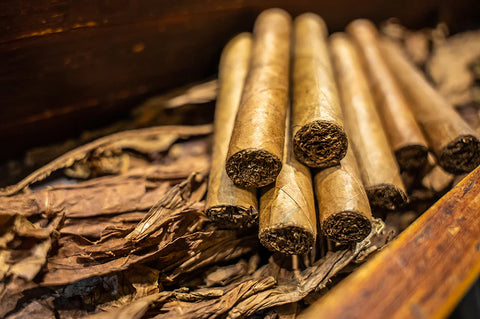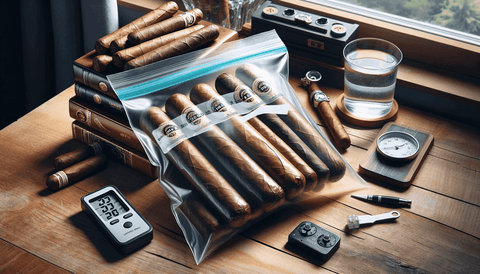Cuban cigars have long been revered as the gold standard in the world of premium tobacco products. Their rich history spans centuries, intertwining with the culture, politics, and economy of Cuba and leaving an indelible mark on cigar aficionados worldwide. Understanding the journey of Cuban cigars—from their humble origins to becoming a symbol of luxury and craftsmanship—offers fascinating insights into why they are so cherished today.
Early Origins of Cuban Cigars
The story of Cuban cigars begins long before European contact. Indigenous peoples in the Caribbean, particularly the Taíno tribes of Cuba, were known to roll dried tobacco leaves into rudimentary forms and smoke them as part of ritual and daily life. When Christopher Columbus arrived in 1492, he and his crew observed this practice, bringing tobacco back to Europe. This introduction set the stage for tobacco’s global journey and Cuba’s eventual rise as a premier cigar producer.
The Rise of Tobacco Cultivation in Cuba
In the 16th and 17th centuries, tobacco cultivation took hold in Cuba due to the island’s fertile soil, ideal climate, and skilled labor. Spanish settlers quickly recognized tobacco’s economic potential, and by the 18th century, Cuba was exporting tobacco across Europe. The tobacco grown in the Vuelta Abajo region, in western Cuba, gained a reputation for its exceptional quality, rich flavor, and unique aroma, distinguishing Cuban cigars from those produced elsewhere.
The Birth of the Cuban Cigar Industry
The 19th century marked a turning point for Cuban cigars. Hand-rolled cigars became popular not just within Cuba but internationally, especially among European elites and American consumers. Iconic brands such as Partagás (founded in 1845), H. Upmann, and Romeo y Julieta emerged during this period, setting the foundation for Cuba’s cigar prestige. Factories in Havana, like El Laguito and Partagás, employed expert torcedores (cigar rollers) who perfected the craft, turning cigar making into an art form.
The Golden Age and International Fame
By the early 20th century, Cuban cigars were synonymous with luxury, quality, and refinement. They were favored by historical figures like Winston Churchill, who famously smoked Cuban cigars, cementing their association with power and sophistication. This era saw technological innovations in production while maintaining traditional hand-rolling techniques, further enhancing quality and consistency.
Cuban cigars became a cultural icon, celebrated in literature, music, and film. The island’s cigar industry became a key part of Cuba’s economy, contributing significantly to its exports and global image.
Impact of Political Changes
The Cuban Revolution in 1959 dramatically changed the landscape of the cigar industry. The new government nationalized cigar factories, and many cigar makers fled to other countries such as the Dominican Republic, Nicaragua, and Honduras, where they continued the Cuban tradition in exile. This migration led to the rise of new cigar industries in these countries, sometimes called "Cuban-style" cigars, which contributed to global cigar diversity.
Simultaneously, the United States imposed a trade embargo against Cuba, making authentic Cuban cigars illegal to import into the U.S. market. Despite this, Cuban cigars continued to be sought after worldwide, often smuggled or purchased through third countries, enhancing their allure and mystique.
Cuban Cigars Today
Today, Cuban cigars maintain their prestigious status and continue to be regarded as some of the finest cigars in the world. The Cuban government, through Habanos S.A., controls cigar production and distribution, focusing on quality and authenticity. Cuban cigars are appreciated for their complex flavors, smooth draws, and craftsmanship.
Collectors and aficionados prize aged Cuban cigars, sometimes holding them for years to develop nuanced flavors. The island’s cigar culture remains vibrant, with festivals, tours, and cultural events celebrating this heritage.
Why Cuban Cigars Remain Iconic
-
Unique Terroir: The distinct climate and soil of Cuba’s tobacco-growing regions contribute to flavors that are difficult to replicate elsewhere.
-
Expert Craftsmanship: Decades of passed-down knowledge ensure each cigar is meticulously made by skilled artisans.
-
Cultural Significance: Cuban cigars are deeply woven into Cuban history and identity, elevating their value beyond just a smoking product.
-
Exclusivity: Due to embargoes and limited production, Cuban cigars often carry a premium and exclusivity factor.
Understanding the rich history and evolution of Cuban cigars enhances appreciation for each cigar smoked. They are not just tobacco products but living symbols of culture, tradition, and craftsmanship that have captivated the world for centuries.





